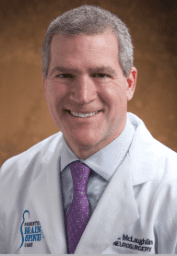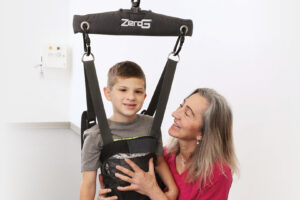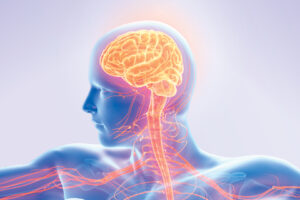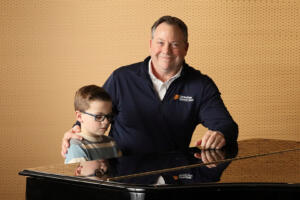We all know people who have accomplished amazing things in their 70s, 80s and 90s — from earning advanced college degrees to publishing books or completing remarkable works of art.
What do all of these people have in common? Their incredible work is not the result of a sudden burst of inspiration, but rather the product of a lifelong habit of constantly learning and trying new things.
While the brain is not a muscle, it helps to think of it as a muscle. If you don’t continue to “exercise” your brain as you age, you’re going to slowly lose the mental vigor you had in your younger years. In short, you use it or you lose it.
In the same way, if you don’t take measures to your protect your brain from injury, you may also cut short your ability to reach your life’s potential. No matter your age, I believe that as long as we’re on this planet, we have the potential to impact others and make a positive difference in the world.
Prevent Injuries
An estimated 1.7 million people suffer a traumatic brain injury each year, according to the U.S. Centers for Disease Control and Prevention. We tend to think of brain injuries as accidents — something out of our control — but the reality is that many are the result of bad habits. If you identify these habits, and change them, you can significantly reduce your risk. Some of these habits include:
- Overlooking household dangers. Falls in the home are a major cause of head injuries, particularly on stairs and in kitchens and in bathrooms. Make sure stairways are completely uncluttered, always use the handrail and wear safe and steady footwear. (No flip-flops or high heels.) Keep food, dishes and utensils in the kitchen at eye level — where you can reach them without a stepstool. Grab bars in the bathroom can also prevent many slips and falls.
- Ignoring “minor” health issues. As a neurosurgeon, I have seen people who have died as a result an abscess (a collection of pus) in the brain that start as a simple, treatable tooth infection. Meningococcal meningitis, which can cause severe damage to the brain and spinal cord, is preventable with a vaccine. Even “minor” concussions are not to be ignored because multiple head injuries can permanently disrupt the brain’s processing power.
- Not wearing a helmet. Here is a simple rule: If you are involved in any activity in which you are likely to fall or get hit in the head — notably biking and skiing — wear a helmet. My worst experiences as a physician have been the times I’ve had to tell families that a loved one had suffered a severe brain injury that could have been prevented by a helmet.
Nourish the Brain
I like to tell my patients to think of the body as a nest — it’s the only place you have to live, so you better take care of it. The brain is the most complex organ in the body, and it requires all of the care (and more) that we put into maintaining our heart, joints and other systems. To keep the brain sharp:
- Learn new things. Daily mental challenges — from puzzles to studying a new language — keep the brain active and working. As long as your brain is active, you never know when you’re going to find your inspiration or inspire someone else. (For example, did you know that Benjamin Franklin invented bifocals at age 78?)
- Eat right. Your diet should be high in plant-based foods, such as fruits and vegetables, and whole grains as well as fish and other lean sources of protein. This so-called Mediterranean diet is associated with a reduced risk of many diseases, including Parkinson’s and Alzheimer’s. Alcohol, which can damage the brain in excess, should be limited to no more than one drink a day for women and two for men.
- Relax. Too much stress and not enough sleep can damage our ability to think. Adults should be getting at least six to eight hours of sleep each night. Forty minutes of vigorous exercise a day (think a brisk walk), reduces levels of the body’s stress hormones, such as adrenaline and cortisol.
Once you start incorporating more and more of these healthy habits into your daily life, you’ll find that they come naturally and result in better overall health. Just remember: First you make your habits, and then your habits make you.
Specialized Medical Care for the Brain and Nervous System
The Neuroscience Center of Central Jersey, one of the specialized treatment centers at CentraState Medical Center in Freehold, offers neurologic diagnostic, treatment and rehabilitation for injuries or medical conditions related to the brain, spine and nervous system. Treatment services include disease and pain management, neurosurgery and advanced radiation therapy for tumors in the brain.
To find a neurosurgeon or neurologist, visit our Physician Finder.
 Mark McLaughlin, MD is a board-certified neurosurgeon on staff at CentraState Medical Center in Freehold. He maintains a private practice at Princeton Brain & Spine Care located at CentraState’s Star and Barry Tobias Ambulatory Campus. He can be reached by calling 866-CENTRA7.
Mark McLaughlin, MD is a board-certified neurosurgeon on staff at CentraState Medical Center in Freehold. He maintains a private practice at Princeton Brain & Spine Care located at CentraState’s Star and Barry Tobias Ambulatory Campus. He can be reached by calling 866-CENTRA7.





